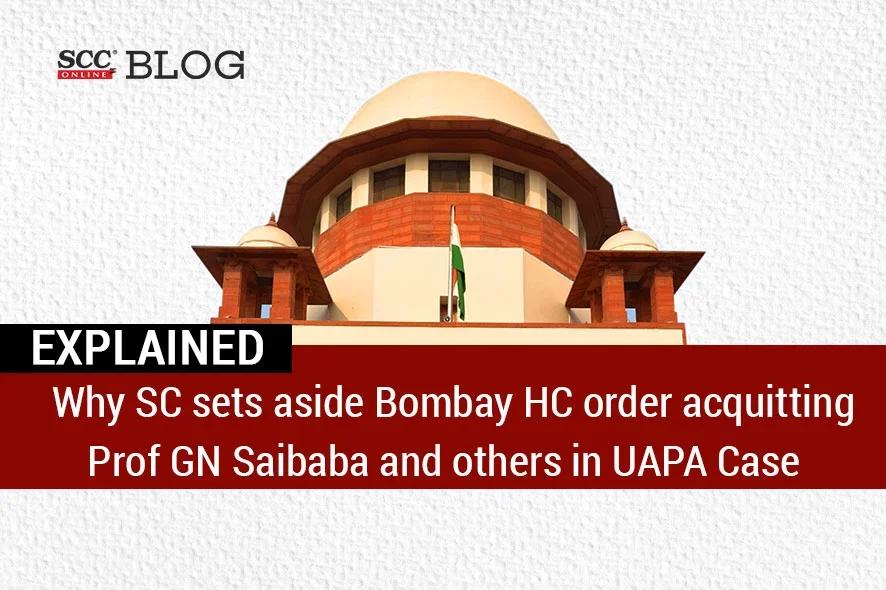Supreme Court: In a set of criminal appeals, against the order of Bombay High Court, wherein the accused persons (‘convicts') were acquitted of the charges under the Unlawful Activities (Prevention) Act, 1967, the Division Bench of M.R Shah and C.T Ravikumar, allowed the appeals and set aside the High Court's order. It was directed to remit back the appeals to the High Court for fresh disposal by another bench.
Background
In the matter at hand, the convicts were accused of offences punishable under Sections 13, 18, 20, 38 and 39 of the Unlawful Activities (Prevention) Act, 1967, read with Section 120-B of the Penal Code, 1860 (‘IPC'). The Trial Court, by a detailed judgment and order and on appreciation of the entire evidence on record, convicted the accused persons and sentenced them to life imprisonment. Aggrieved by the order of the Trial Court, the convicts appealed before the High Court to set aside the conviction. The High Court discharged the convicts solely on the grounds of invalid sanction. Aggrieved by the order of the High Court, the State of Maharashtra has appealed before the Court against the acquittal order.
Court's Decision
The Court viewed the broad consensus between the respective parties to set aside the impugned judgment passed by the High Court and to remit the matter back for fresh disposal of the appeal on merits, including the question of valid sanction or no sanction, the Court said that, without further entering the merits of the case or expressing anything on merits in favour of either of the parties, the impugned judgment of the High Court is set aside.
Further, the Court said that the matters are remitted back to the High Court to decide the appeals afresh in accordance with the law and on its own merits, including the question of sanction. The Court also stated that, all the contentions and the defences, which may be available to the respective parties are kept open to be considered by the High Court in accordance with law and on its own merits and on basis of the evidence, which are already on record before the Trial Court.
The Court directed the High Court to dispose of the appeals at the earliest and preferably within a period of 4 months from the date of receipt of the present order. It was also directed that the appeals should be placed for final hearing before the Bench other than the Bench, which passed the impugned judgment to avoid any further apprehensions.
Therefore, the Court allowed the appeal and set aside the impugned judgment of the High Court.
[State of Maharashtra v. Mahesh Kariman Tirki, 2023 SCC OnLine SC 476, decided on: 19-04-2023]







